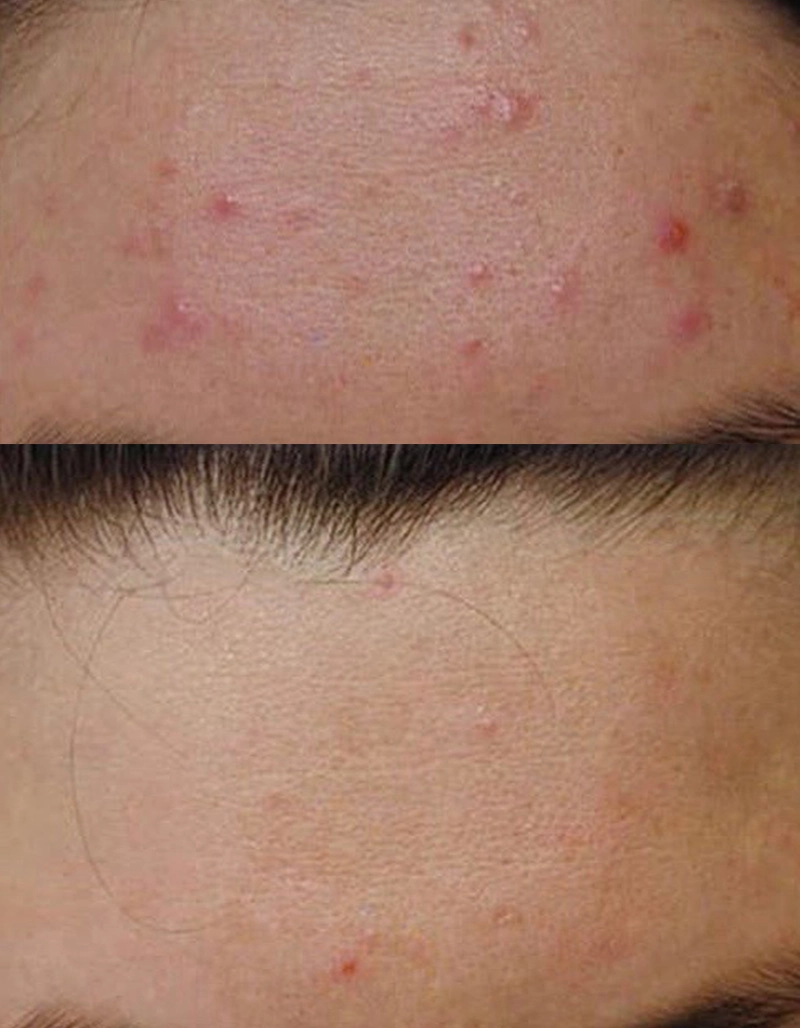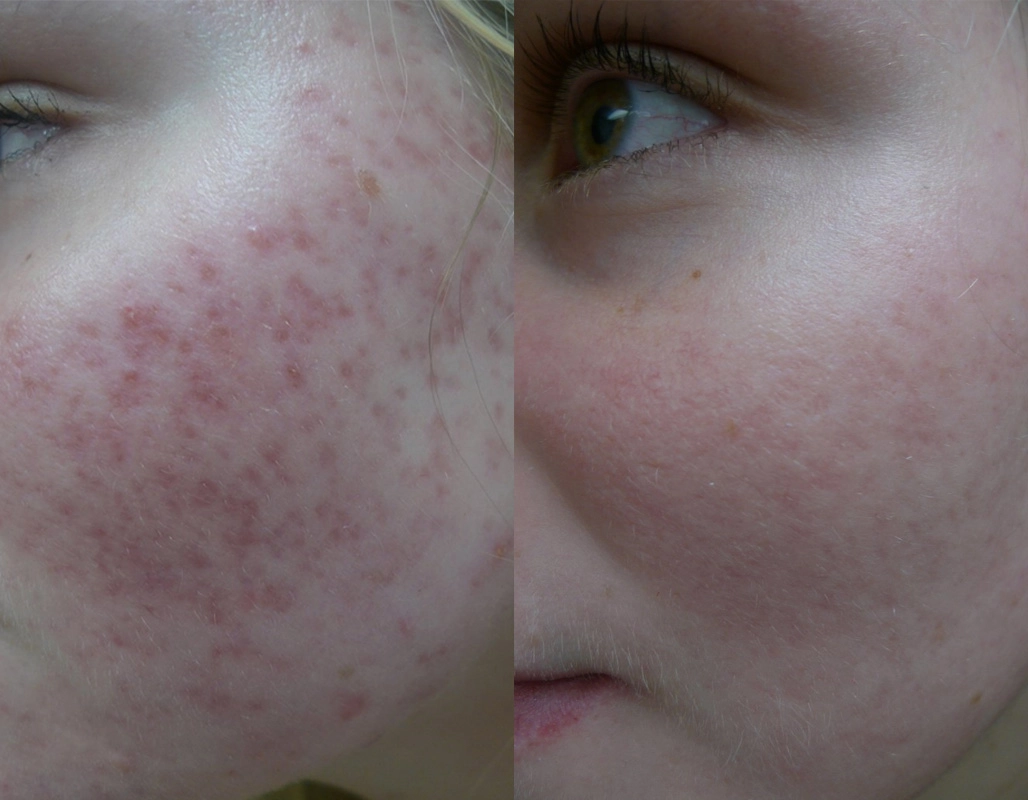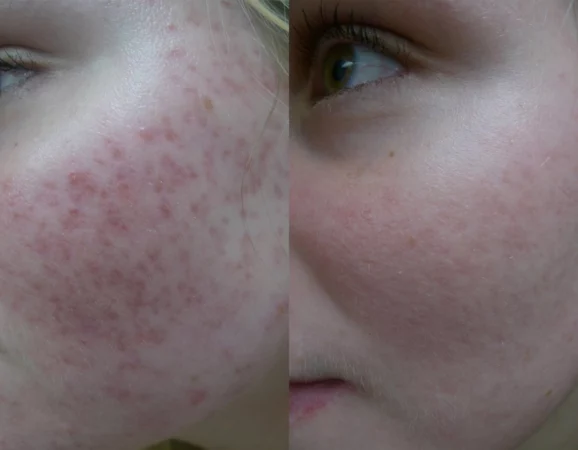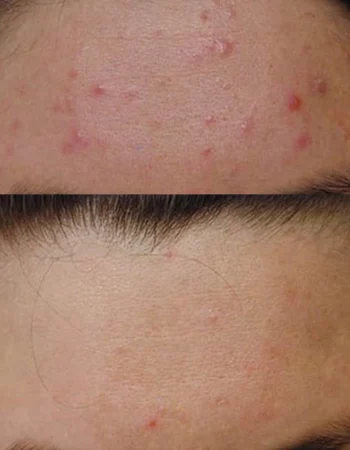Psoriasis can be a lifelong condition which may be triggered by foods. Eating a healthy well-balanced diet can improve psoriasis. A dietician who specialises in psoriasis can help you find a simple, sensible, & flexible program incorporating vitamins & minerals to help in the management of the disease.
Key Points
- Food triggers maybe seen in some individuals
- Vitamin & supplements such as omega 3 oils and antioxidants may improve psoriasis
- In rare cases gluten insensitivity may trigger psoriasis
- Flexural psoriasis patient often benefits from low calorie diets
- Dietary changes can reduce heart disease in psoriasis patients
Psoriasis Diet at a glance
Our results speak for themselves

Before
After

Before
After

Topicals to treat acne, vascular laser therapy to reduce redness
Ask us more about this treatmant
Preferred Consultation

Before
After

Topicals to treat acne, BHA based chemical peel to reduce blackheads & oil production
Ask us more about this treatmant
Preferred Consultation
FAQs
What should I eat to help with my psoriasis?
There is no absolute psoriasis diet, however as a general guide we recommend the following:
Eat food rich in antioxidants: these include foods rich in vitamin A, C and E. Organically grown green leafy vegetables are the best.
Eat foods rich in bioflavonoids: this can reduce antioxidants and inflammation. Food groups include fruits, grains, seeds & green tea.
Vitamin infused food groups rich in A, C, E: Consume high carotenoid food groups such as vegetables, pumpkin, apricots and green leafy vegetables. Vitamin C infused foods include grapefruit, broccoli, orange juice (in moderation, as acidic foods can flare up psoriasis). Vitamin E rich foods include sunflower & safflower oils, seed, wheat germ (not if you are intolerant to gluten), nuts & avocados.
Folate foods: This group includes peas, cabbage, broccoli, lentils & cereals. Folate can help in cell division which is important in controlling psoriasis.
Omega-3 Fatty acids: This special oil can help reduce the inflammation of psoriasis. Fish is a great source of protein and omega fatty acids. Consume at least 5 servings a week. Great sources include salmon, mackerel & sardines.
Sounds confusing? Discuss this with your dietician
What foods should I avoid if I have psoriasis?
Knowing what foods to consume to reduce inflammation is only half the story! It is equally important to avoid trigger foods as well.
Research has shown acidic foods may flare up psoriasis. Psoriasis patients should avoid tomatoes, spicy foods, red meat, alcohol & carbonated drinks. Some patients with gluten intolerance should also avoid wheat, rye an
What supplements can help with psoriasis?
Supplements are designed for people who cannot receive vitamins & minerals in their diet. Psoriasis patients often shed excessive skin cells because of their disorder. Minerals & vitamins may be depleted over time.
With the help of a dietician, you can develop a tailored plan to help replenish vitamins and minerals.
Supplements include-
- Vitamin A and Carotene
- Selenium
- Vitamin E and Omega 3
- Vitamin C
- Bioflavonoids
- Folic acid and zinc
- Potassium *
Can a gluten free diet help with psoriasis?
In rare cases, a gluten free diet can help. Gluten is a compound found in grasses such as wheat, rye & barley. Coeliac disease & a skin condition known as dermatitis herpetiformis is a form of gluten intolerance. Psoriasis patients who have these associated conditions will benefit from a gluten free diet.
Some cases of psoriasis on the hands and feet (palmar-plantar psoriasis) may also respond to gluten restriction.
If you would like to trial a gluten free diet as part of your psoriasis treatment, book a consult with an accredited dietician.
Products

O Cosmedics cleansing range
$63.00-$64.00

O Biotics 3D Hyaluronic Serum
From $97.00
Though controversial, diet can improve some cases of psoriasis. If you are after a natural remedy, consider the combination of an anti-inflammatory diet & narrowband phototherapy.
What is the link between psoriasis, heart disease and eating healthy?
Psoriasis is a skin condition; however recent research has shown that inflammation can occur in the arteries of the heart.
Patients with psoriasis have a much higher incidence of heart disease. Eating healthy, including low fat meals can reduce cholesterol levels & reduce the risk factors of heart disease & stroke.
What eating habits should I develop?
Following a set diet for life is very difficult. The secret behind any psoriasis diet is developing sensible & flexible eating habits. A dietician will guide you thru these habits, including-
- Eating regularly and never skipping meals
- Keeping a food diary to keep track of the foods you eat
- Eating in moderation
- Supplement your diet if minerals and vitamins are lacking
How can a dietician help?
Eating correctly for life can be very difficult, however coming up with a sensible, flexible & easy to follow diet is the key to managing your food intake. Dieticians can assist in providing a tailored diet to suit you.
How do I take the first step in clearing my psoriasis?
Living with psoriasis can be problematic, troublesome & frustrating. The experts at Cutis Dermatology will provide the recommendations and treatments to get you cleared up in no time!



